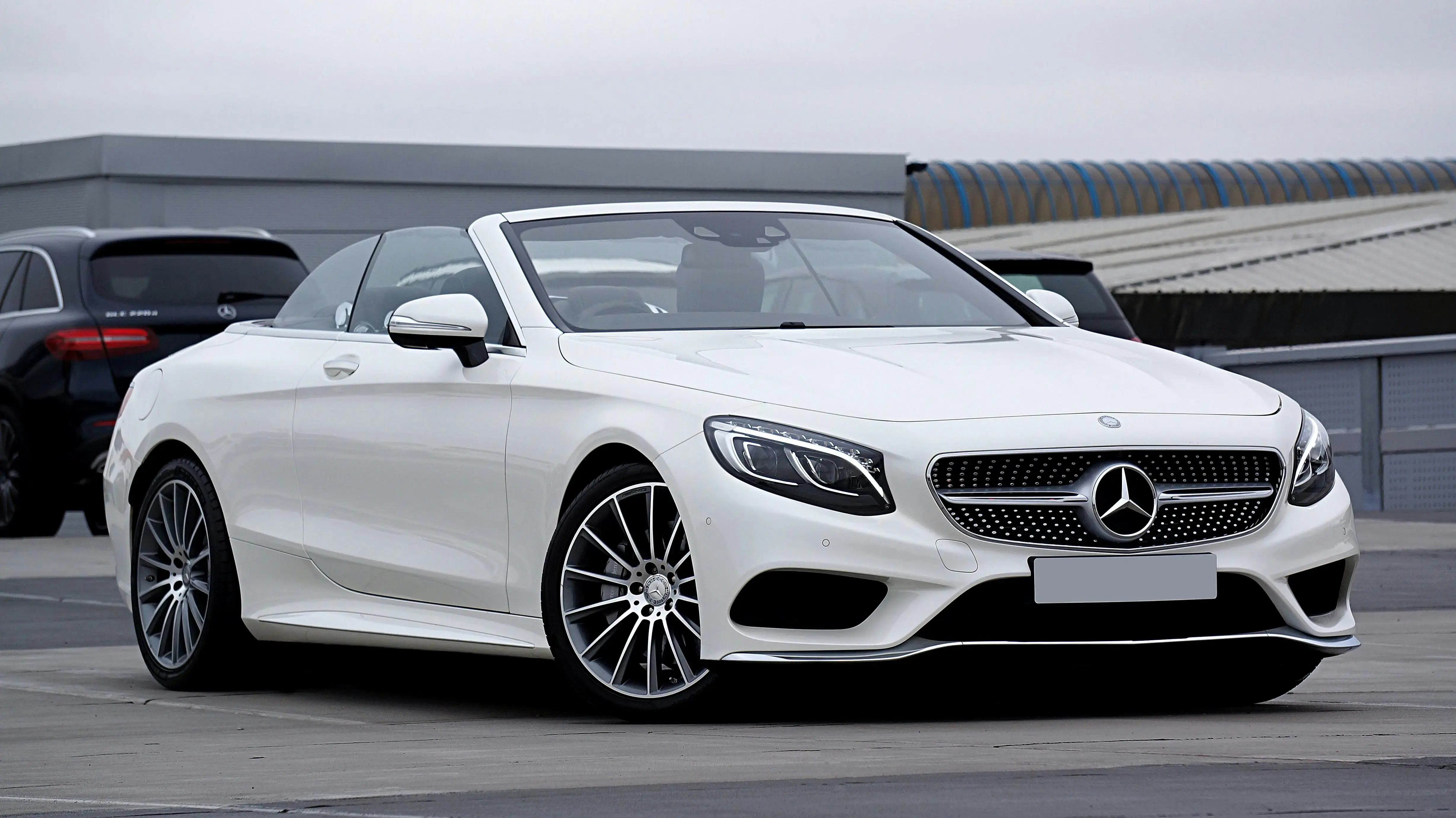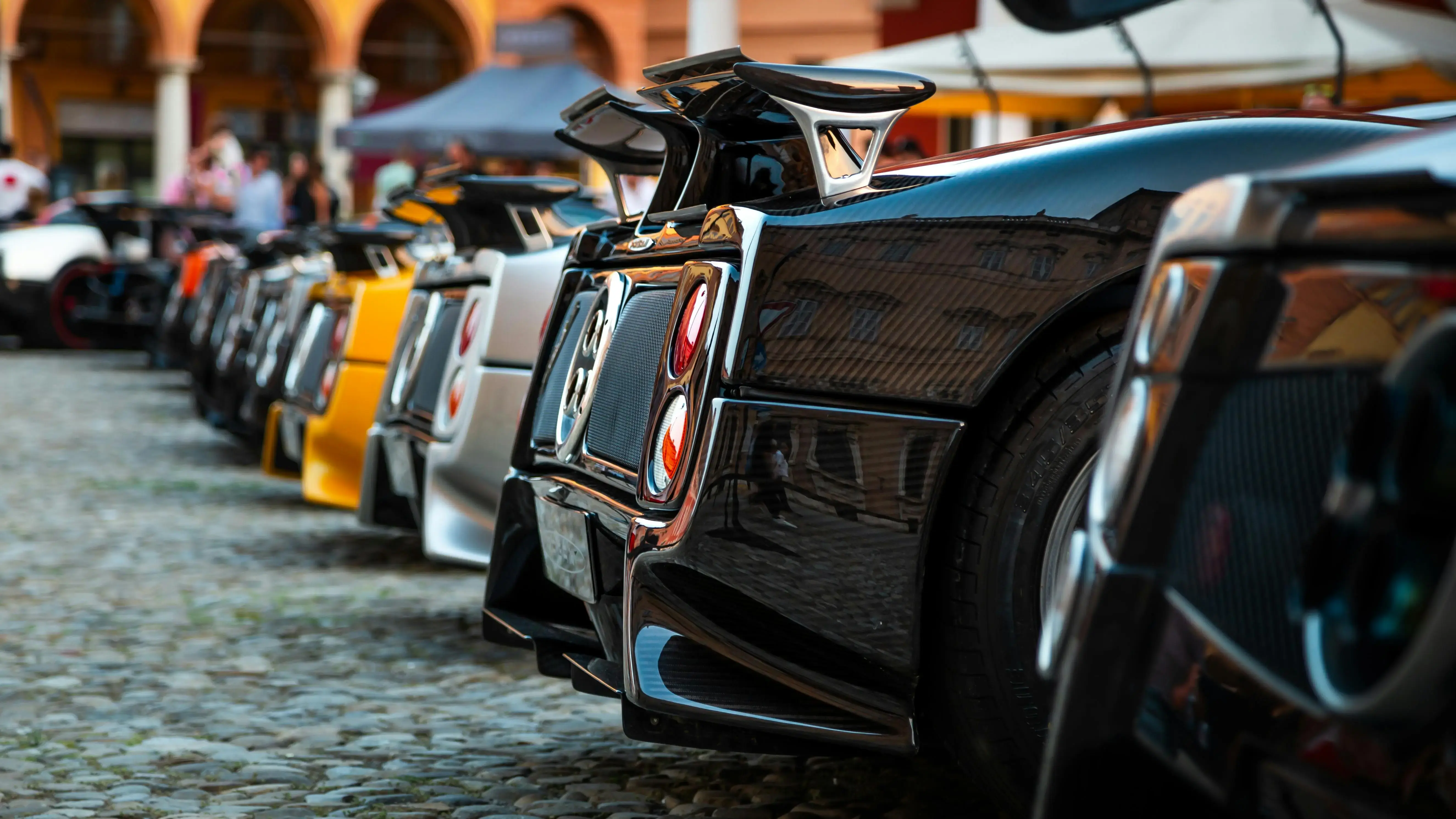How Much Does It Cost to Import a Car from the Netherlands to the US?
The Netherlands is a strategic gateway for European exports to the U.S., with Rotterdam offering world-class port handling and frequent sailings. From classic European models to Dutch-market variants, importing via the Netherlands combines strong logistics with broad vehicle availability. Since April 2025, tariff treatment can significantly affect total cost depending on origin and HTS classification—not all vehicles are impacted the same way.
Why a full cost breakdown matters
Accurate planning requires a line-item view across tariffs/duties, compliance, and fees. This guide covers costs for 25-year classics that qualify for established tariff exemptions and modern vehicles that may need EPA/DOT modifications.
Critical update on 2025 tariffs
-
Base duty (most passenger cars): 2.5% (HTS 8703.x).
-
10% baseline tariff (2025 update): May apply in addition to the base duty depending on origin and HTS classification.
-
Section 232 (finished vehicles): 25% for non-exempt countries. Trade-agreement partners (e.g., USMCA) can be exempt if rules-of-origin are met. For EU-origin (including the Netherlands), applicability can vary with current policy—confirm at entry.
-
25-year exemption: Vehicles 25+ years old, when properly coded under HTSUS 9903.94.04, are exempt from the 25% Section 232 tariff and typically pay only the 2.5% base duty.
What this means: Depending on origin/content and HTS coding on CBP Form 7501, duty load could be 2.5%, 12.5% (2.5%+10%), or up to 37.5% (2.5%+10%+25%).
Current shipping costs from the Netherlands to the U.S.
-
Ocean freight (Rotterdam → New York): ~$2,750 with ~18-day transit (typical, not guaranteed).
-
Cost variability: Fuel surcharges, congestion, equipment availability, seasonality, and carrier adjustments can move rates materially.
Dutch port advantages
-
Rotterdam excellence: Europe’s largest port with frequent U.S. services, competitive rates, and vehicle-friendly handling.
-
Advanced inland network: Efficient collection from anywhere in the Netherlands with streamlined delivery to export terminals.
-
Container leadership: Competitive container pricing and fast turnarounds on established U.S. routes.
Routes & optimization
-
East Coast: New York/New Jersey offers optimal time/cost for most shipments.
-
West Coast: Add ~$500–$800 and 7–10 days due to Panama Canal or longer Pacific routes.
-
Containers: Single-vehicle containers (maximum protection) or consolidated containers (shared) can reduce per-car cost in optimal multi-vehicle consolidations (often up to ~50%).
-
Special handling: Climate-controlled/enhanced security adds $1,500–$4,000.
Market factors
-
Fuel surcharges: Often add ~$200–$400, fluctuating with bunker prices and routing.
-
Terminal efficiency: Rotterdam’s automation and processes help minimize handling delays.
2025 duties & established exemptions (Netherlands)
Dutch-origin vehicles follow the U.S. framework above; actual tariff outcome depends on origin, classification, and exemptions.
Tariff structure (effective April 2025)
-
Base duty (passenger cars): 2.5% (HTS 8703.x).
-
10% baseline tariff: May apply in addition to base duty (origin/HTS dependent).
-
Section 232 (finished vehicles): 25% for non-exempt countries.
-
25-year exemption: HTS 9903.94.04 exempts qualifying classics from the 25% Section 232; the 2.5% base duty typically still applies.
Light trucks (“Chicken Tax”)
Certain light-truck classifications (often HTS 8704) are subject to a 25% Chicken Tax. Whether additional tariffs (10% baseline and/or 25% Section 232) apply is not automatic and must be confirmed by HTS coding on CBP Form 7501.
Other notes
-
Timeline: Section 232 for finished vehicles applies to entries on/after April 3, 2025; automotive parts enforcement began May 3, 2025 (can influence retrofit costs).
-
Documentation: Keep complete records for five years; ensure Form 7501 lists the base HTS and any exemption codes (e.g., 9903.94.04).
-
Trade-agreement treatment: Vehicles meeting rules-of-origin under applicable agreements (e.g., USMCA for North American-built vehicles) may be exempt from Section 232.
Remove/avoid: Speculative EU-U.S. “15% ceilings,” “U.S. content portions,” and audit mechanics via CBP Form 28/29 as a path to reduce 232. Stick to proper HTS/RoO treatment reflected on Form 7501.
Mandatory processing fees (typical)
-
Harbor Maintenance Fee (HMF): 0.125% of the import entry’s value as determined for HMF purposes (valuation rules can differ—confirm with your broker).
-
Merchandise Processing Fee (MPF): 0.3464% of the entered value; min $31.67 / max $634.62.
-
Customs bond: Common costs are usually $125–$650 depending on bond type/vehicle value.
Real-world duty scenarios (Netherlands)
Classic Dutch-market vehicle (€22,000 / $24,000) — 25-year exemption qualified
-
Shipping (to NY): $2,750 (est.)
-
Duty (2.5%): $600 (with 9903.94.04 exemption for Section 232)
-
HMF (~0.125%): ~$30.00
-
MPF (~0.3464%): ~$82.94
-
Bond: ~$240
-
Total duties & fees: ~$3,703 (illustrative; exemption yields major savings)
Modern Dutch SUV (€45,000 / $49,000) — show three outcomes
-
Shipping (to NY): $2,750 (est.)
-
Scenario A (Base only): 2.5% = $1,225
-
Scenario B (Base + Baseline): 12.5% = $6,125
-
Scenario C (Base + Baseline + Section 232, non-exempt): 37.5% = $18,375
-
HMF/MPF/Bond (illustrative): HMF ~$61, MPF ~$169, bond ~$490
-
Note: Final treatment depends on origin, content, and HTS coding on Form 7501.
EPA/DOT compliance (Netherlands)
Vehicles under 25 years must meet U.S. standards or be modified by an RI/ICI.
-
European standards alignment: EU-spec lighting, emissions, and safety typically require modification for U.S. compliance.
-
RI availability: Many pan-EU models (BMW, Mercedes-Benz, Audi, Porsche, etc.) have established RI pathways; truly niche variants may not.
-
Left-hand drive: Standard LHD mitigates RHD conversion costs.
Indicative RI costs
-
Lighting: $2,000–$5,000
-
Emissions: $4,000–$12,000
-
Safety systems: $3,000–$10,000
-
Cluster/speedo: $600–$1,500
-
Typical RI total: $9,600–$28,500 (vehicle complexity and retrofit kit availability drive variance)
ICI path (when RI not available)
-
EPA testing/certification: $18,000–$40,000
-
DOT compliance testing: $12,000–$35,000 (full crash testing is rare)
-
Admin/certification: $6,000–$18,000
-
Typical ICI total: $36,000–$93,000 (generally reserved for very high-value vehicles)
Additional cost considerations
-
Customs brokerage: $400–$800 (complexity dependent).
-
Dutch pre-purchase inspections: $300–$700.
-
Netherlands collection to Rotterdam: $250–$600.
-
U.S. delivery: Typically $800–$1,200+ (distance/equipment dependent).
-
State registration/taxes: Registration $100–$800 plus state/local sales tax; some states require extra inspections ($150–$500).
-
Transport coverage: International coverage typically 0.5–2% of vehicle value; optional climate-control/security increases apply.
Complete Dutch import cost examples
Mid-range classic (1998 BMW 328i Touring, Dutch market) — 25-year exemption qualified
-
Purchase: €20,000 ($21,500)
-
NL collection: $350 (est.)
-
Ocean freight (RTM→NY): $2,750 (est.)
-
Duty (2.5%): $538 (Section 232 exempt via 9903.94.04)
-
Processing fees (HMF/MPF): ~$85
-
Customs brokerage: $500
-
U.S. delivery: $800 (varies)
-
Estimated total: ~$26,023 (illustrative; exemptions apply)
Luxury modern (2019 Audi RS6 Avant, Dutch market)
-
Purchase: €85,000 ($92,500)
-
NL collection: $500 (est.)
-
Ocean freight (RTM→NY): $2,750 (est.)
-
Duty scenarios:
-
Base only 2.5% = $2,312
-
Base + baseline 12.5% = $11,562
-
Base + baseline + Section 232 (non-exempt) 37.5% = $34,688
-
-
Processing fees: ~$350
-
RI modifications (performance vehicle, est.): $22,000
-
Customs brokerage: $750
-
U.S. delivery: $1,200
-
Estimated total: Varies widely by tariff scenario and compliance pathway.
Bottom line
Netherlands-to-U.S. imports benefit from Rotterdam’s logistics and frequent sailings. For modern vehicles, plan duty scenarios at 2.5%, 12.5%, and up to 37.5% (if Section 232 applies). 25-year classics can be very economical when coded under 9903.94.04. Accurate HTS coding and rules-of-origin verification on CBP Form 7501 are decisive.
For detailed cost calculations specific to your Dutch vehicle import considering current tariff structures and compliance requirements, use our car import calculator to receive personalized estimates.Cargo Damage Protection
Even with professional handling and secure loading, unexpected incidents can occur during international shipping. West Coast Shipping offers Cargo Damage Protection to safeguard your vehicle from potential loss or damage while in transit. This optional coverage provides peace of mind and ensures that, in case of unforeseen events, your investment remains protected.
This comprehensive protection covers various scenarios that standard shipping protection may not address, including damage during loading/unloading, weather-related incidents, and handling mishaps that can occur despite professional care. For valuable Dutch vehicles, particularly classic or high-performance models, this additional protection represents a small investment relative to the potential financial exposure of shipping unique automobiles internationally.
Professional Dutch Import Services
West Coast Shipping specializes in Netherlands vehicle imports with comprehensive services designed to navigate complex requirements while identifying potential cost savings and exemptions.
Comprehensive Dutch Import Support
Pre-Purchase Consultation: Expert guidance on Dutch vehicle selection, market conditions, compliance requirements, and total cost analysis including potential tariff exemptions before purchase commitment.
Netherlands Market Expertise: Specialized knowledge of Dutch automotive market conditions, seller verification, vehicle history research, and negotiation support for optimal purchase decisions.
Rotterdam Logistics Coordination: Direct relationships with Rotterdam port facilities and handling services ensure efficient vehicle collection, export processing, and container loading with competitive pricing.
Specialized Services for Dutch Imports
Classic Vehicle Expertise: Comprehensive knowledge of European automotive history, collector market values, and restoration considerations for vehicles from the Dutch market.
Compliance Pathway Optimization: Professional assessment of optimal compliance routes for specific Dutch vehicles, potentially saving thousands in unnecessary modifications or testing procedures.
Documentation Management: Complete handling of all required paperwork including Dutch export documentation, US customs forms, exemption applications, and state registration requirements with proper recordkeeping for audit compliance.
Tariff Exemption Assessment: Professional evaluation of potential duty reductions through ongoing EU trade negotiations, US content claims, or other applicable exemptions that may significantly reduce total costs.
Frequently Asked Questions About Importing Cars from the Netherlands to the US
How much does it cost to import a car from the Netherlands to the US?
Totals depend on tariff scenario (base 2.5% only; base + 10% baseline = 12.5%; or base + baseline + 25% Section 232 = up to 37.5%), plus compliance and logistics.
-
Classic example (1998 BMW 328i Touring, 25-year exemption): ~$26.5k all-in (e.g., ~$21.5k purchase + ~$2,750 shipping + ~2.5% duty + fees + domestic delivery).
-
Modern example (2019 Audi RS6 Avant): about $122k – $155k depending on tariff scenario:
-
2.5% duty: ~$122.4k
-
12.5% duty: ~$131.6k
-
Up to 37.5% duty (non-exempt Section 232): ~$154.7k
(A single mid-case of 27.5% duty would land around $145.5k, but duty treatment is conditional on origin and HTS coding on CBP Form 7501.)
-
Why is Rotterdam a good port for car imports?
Rotterdam is Europe’s largest port with frequent US sailings, competitive container rates, efficient automation, and typical ~18-day transit to New York (timings not guaranteed). The Netherlands’ inland logistics make vehicle collection and drayage to port straightforward.
Do Dutch vehicles need expensive modifications?
-
Modern vehicles (<25 years): Plan roughly $9,600–$28,500 for RI-led EPA/DOT modifications (lighting, emissions, safety, cluster). Some high-value niche models can exceed this.
-
25+ years old: Typically no EPA/DOT modifications required.
-
LHD benefit: Most Dutch vehicles are left-hand drive, avoiding costly RHD conversions.
Can I save money importing from the Netherlands?
Yes, you can reduce costs by sharing a container with other importers (saving up to 50% on shipping). Classic vehicles over 25 years old save $9,600-$28,500 in modification costs. The Netherlands also offers well-preserved vehicles with excellent documentation, reducing risk and potential repair costs.
For comprehensive information about importing vehicles from other countries and comparing total costs across different automotive markets, visit our complete country-by-country import cost guide.
Get Your Dutch Import Cost Assessment Today
Importing vehicles from the Netherlands to the United States in 2025 requires careful consideration of significantly increased tariff costs, potential exemptions, complex compliance requirements, and various additional expenses that substantially impact total investment. The new tariff structure makes professional assessment essential for identifying applicable exemptions and accurate budget planning.
Our experienced team provides comprehensive support throughout the entire process, from initial Netherlands market consultation through final US registration and delivery.
You May Also Like
These Related Stories

How Much Does It Cost to Import a Car from Germany to the US in 2025?

How Much Does It Cost to Import a Car from Spain to the US in 2025?

-093789-edited.png?width=220&height=79&name=wcs_final_logo_(1)-093789-edited.png)
